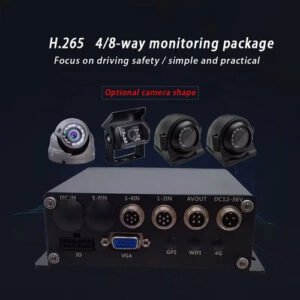Introduction
In today’s fast-paced logistics landscape, fleet managers and logistics companies face increasing pressure to enhance operational efficiency, reduce costs, and improve safety. Traditional fleet management methods often fall short in meeting these demands. Enter the smart fleet management system—a technology-driven solution designed to revolutionize fleet operations.
What Is a Smart Fleet Management System and How Does It Work?
A smart fleet management system integrates advanced technologies such as the Internet of Things (IoT), GPS tracking, telematics, and data analytics to monitor, manage, and optimize fleet operations in real-time. By equipping vehicles with IoT devices and sensors, these systems collect and transmit data on vehicle location, performance, and driver behavior, providing fleet managers with actionable insights to make informed decisions.
Key Features of a Smart Fleet Management System
- Real-Time Vehicle Tracking: Monitor vehicle locations and routes in real-time, enabling efficient dispatching and route optimization.
- Predictive Maintenance: Receive alerts for maintenance needs before issues escalate, reducing downtime and repair costs.
- Driver Behavior Monitoring: Analyze driving patterns to promote safety and fuel-efficient practices.
- Fuel Management: Track fuel consumption to identify inefficiencies and reduce costs.
- Geofencing: Set virtual boundaries to enhance security and ensure compliance with designated routes.
Benefits for Fleet Managers and Logistics Companies
Implementing a smart fleet management system offers several advantages:
- Enhanced Operational Efficiency: Automated processes and real-time data lead to streamlined operations and improved productivity.
- Cost Reduction: Optimized routes and maintenance schedules contribute to significant savings in fuel and operational expenses.
- Improved Safety: Monitoring driver behavior and vehicle health reduces the risk of accidents and enhances overall fleet safety.
- Regulatory Compliance: Accurate record-keeping and monitoring ensure adherence to industry regulations and standards.
- Customer Satisfaction: Timely deliveries and reliable services enhance customer trust and loyalty.
Comparison with Traditional Fleet Management Systems
Traditional fleet management relies heavily on manual processes and lacks real-time visibility, leading to inefficiencies and higher operational costs. In contrast, smart fleet management systems leverage technology to provide real-time data, predictive analytics, and automation, resulting in more efficient and effective fleet operations.
Explore Smart Fleet Management Solutions
Investing in a smart fleet management system is a strategic move toward operational excellence. By embracing this technology, fleet managers and logistics companies can achieve greater efficiency, safety, and profitability in their operations.






